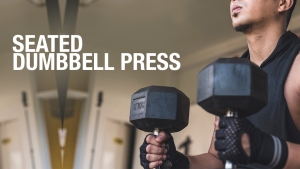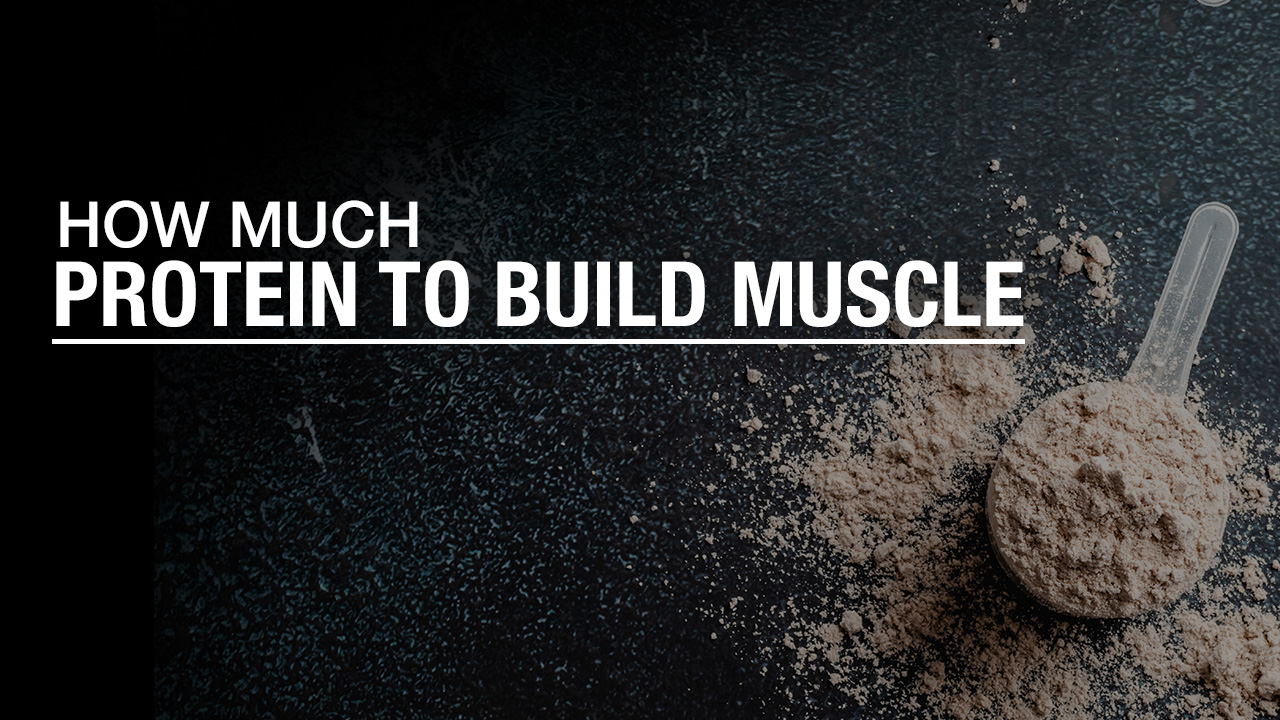
ARE YOU EATING ENOUGH PROTEIN?
Think you’re getting enough protein to build muscle mass?
If you’re still stuck at the same weight and struggling to see muscle growth, you might want to think again.
The common advice of “just eat more chicken” isn’t enough, and relying on a scoop of protein powder as your only secret weapon won’t cut it either.
The truth is, most people either aren’t eating enough protein or are eating the wrong kinds of proteins at the wrong times, sabotaging their muscle-building efforts.
When it comes to priming your body for muscle growth, protein isn’t just another nutrient—it’s the foundation.
Your body needs adequate protein intake, specifically the right amounts of essential amino acids, to fuel muscle protein synthesis and prevent muscle loss.
Whether you’re consuming animal-based proteins like lean meats or opting for plant-based protein sources, the key is to understand exactly how much protein you need per day to see real results.
Let’s break down the science-backed answers to the question, “How much protein should I eat to build muscle?”
We’ll do a systemic review of daily protein targets, grams per pound of body weight, and the best complete protein sources.
UNDERSTANDING PROTEIN AND MUSCLE GROWTH
Protein isn’t just another nutrient on your plate—it’s the key player in muscle growth and maintenance.
When you engage in resistance exercise like weightlifting, you’re not just lifting weights; you’re actually creating micro-tears in your muscle tissue.
This is where protein steps in as the ultimate repair crew, delivering essential amino acids that act as the building blocks for muscle growth.
Without adequate protein intake, these tears can’t properly heal, leading to muscle breakdown instead of growth.
Muscle protein synthesis (MPS) is the process by which your body uses dietary protein to repair and build new muscle tissue, making it the critical component of muscle building.
Every gram of protein you consume works towards this muscle protein synthesis, helping you to build lean muscle mass and prevent muscle loss.
The amino acids from protein provide the necessary fuel to kickstart this process, especially after strenuous activity when your muscles are most receptive to nutrient intake.
Why is this important?
Because without adequate amounts of protein, your body can’t perform this vital repair work, leaving you at risk of muscle protein breakdown and missing out on muscle gain.
For active people, especially those engaging in strength training or advanced resistance training techniques, protein isn’t just beneficial—it’s essential.
The right protein intake supports not only muscle repair but also overall cellular function, bone health, and immune function, making it a critical component of your daily diet.
CALORIES AND MUSCLE GROWTH
Let’s get one thing straight: if you’re trying to build muscle without the right calorie game plan, you’re fighting an uphill battle.
The key to muscle growth? A calorie surplus.
This means you need to consume more calories than your body burns each day.
Think of those extra calories as the bricks and mortar your body needs to build muscle—without them, you’re stuck spinning your wheels, no matter how heavy you lift.
On the flip side, if your goal is fat loss, you need to be in a calorie deficit or calorie restriction—eating fewer calories than you burn.
This forces your body to tap into stored fat for fuel, helping you shed pounds while preserving as much lean muscle mass as possible.
But remember, whether you’re aiming for muscle gain or weight loss, the quality of those calories matters.
It’s not just about stuffing your face with junk; it’s about strategic eating that supports your goals.
THE ROLE OF PROTEIN IN CALORIC BALANCE
Every gram of protein packs 4 calories, making it a critical part of your daily intake.
When you’re in a calorie surplus, extra protein ensures those additional calories are put to work building muscle, not just adding body fat.
That’s why high-protein diets are often linked with better body composition, especially when combined with consistent resistance exercise.
It’s not just about how much you eat, but what you eat.
Extra calories from whole foods—like lean meats, eggs, rice, and healthy fats—deliver more than just energy.
They bring the nutrients and building blocks your body needs to maximize growth and recovery.
Those extra calories fuel your workouts, boost muscle protein synthesis, and help you recover faster between bouts of resistance training.
And for healthy people without medical conditions – like a person with diabetes – managing a strategic calorie surplus can support muscle building.
But beware of excess calories from poor sources.
Overloading on empty calories or low-quality proteins can lead to fat gain instead of lean muscle mass.
And let’s not forget the potential cardiovascular disease risks of going overboard on unhealthy fats and sugars.
Stick to a well-rounded approach, focusing on balanced meals that include complete proteins, complex carbs, and healthy fats.
Now, with that said, let’s get to the question you want the answer to.
HOW MUCH PROTEIN TO BUILD MUSCLE?
All this begs the question: How much protein should I eat to build muscle?
Determining how much protein you need to build muscle can be confusing with all the conflicting advice out there.
Let me set the record straight.
My rule of thumb is consuming between 0.75 to 1 gram of protein per pound of body weight each day.
This range provides a solid foundation for muscle growth, muscle maintenance, and optimal recovery after resistance training or other strenuous activities.
For instance, let’s say that you determine your current weight and you’re a 150-pound person.
In this case, your target should be between 112 grams and 150 grams of protein per day to effectively support muscle protein synthesis, prevent muscle loss, and promote muscle gain.
How can you figure this out for yourself? It’s easy – Just do the following:
Again, let’s say that you’re a 150-pound adult. Simply multiply your weight in pounds by 0.75 and 1:
- 150 x .75 = 112.5
- 150 x 1 = 150
Given these numbers, you know that you should be aiming for a protein intake between 112 and 150 grams per day.
This daily protein intake is important for fueling muscle tissue with essential amino acids—the building blocks required for muscle repair, growth, and overall cellular function.
PROTEIN PER KILOGRAM OF BODY WEIGHT
For those who prefer metric measurements, my rule of thumb still applies – we just have to convert the numbers.
Aim for about 1.6 to 2.2 grams of protein per kilogram of body weight per day.
This translates to roughly 120 to 165 grams of protein daily for a 75-kilogram individual.
Again, meeting this daily protein target helps provide the necessary nutrients and amino acid profiles to optimize muscle growth and repair, especially when combined with regular meals, protein-rich snacks, and balanced diets that include a mix of carbs and healthy fats.
ADJUSTING PROTEIN INTAKE FOR SPECIFIC GOALS
If your health goals include weight gain, lean muscle mass increase, or building strength, you may need to push your protein intake towards the higher end of the range.
Conversely, if you’re working on weight loss or body fat reduction, maintaining adequate protein intake is even more important to preserve muscle tissue while in a calorie deficit.
Always consider your dietary protein intake within the context of your total calorie intake to avoid excess protein or nutrient imbalances.
COMPLETE PROTEINS VS. INCOMPLETE PROTEINS
When it comes to building muscle, not all protein sources are created equal.
Here’s a breakdown of some of the best sources of protein based on your dietary preferences.
ANIMAL PROTEINS
High-quality proteins, like those found in animal-based foods such as lean meats, chicken breast, fish, eggs, and dairy products, are considered complete proteins.
These sources contain all the essential amino acids your body needs for muscle protein synthesis, muscle repair, and overall cellular function.
For active people engaged in resistance training or strength exercises, these complete proteins are crucial in supporting muscle building, preventing muscle breakdown, and maintaining immune function.
Animal-based protein sources are packed with beneficial nutrients that support muscle tissue recovery and bone health, making them ideal for both muscle gain and muscle maintenance.
For example, the average chicken breast filet or a serving of lean beef provides a substantial amount of protein per pound of body weight, helping you hit your daily protein intake targets with ease.
These proteins are particularly effective for those with body composition goals, such as increasing lean muscle mass or managing weight through a high-protein diet.
PLANT-BASED PROTEINS
But what if you’re on a plant-based diet or prefer plant-based options?
Plant-based proteins, such as lentils, quinoa, tofu, and plant-based protein powders, offer excellent alternatives.
While these proteins are generally considered incomplete—lacking one or more essential amino acids—they can still play a significant role in muscle building when combined correctly.
For example, pairing grains with legumes, like rice and beans, creates a complete protein profile that provides the amino acids necessary for muscle growth.
Incorporating a varied diet that includes both animal source proteins and plant-based protein sources helps ensure you’re getting adequate protein intake to support your health goals, whether that’s weight gain, muscle maintenance, or overall body composition improvement.
Active adults, particularly those involved in strenuous activities, need to focus on protein intake recommendations to support not only muscle protein synthesis but also other bodily functions that require amino acids from protein.
BALANCING YOUR PROTEIN INTAKE FOR OPTIMAL MUSCLE GROWTH
For those aiming to optimize their protein intake, consider spreading your protein consumption across regular meals and protein-rich balanced snacks throughout the day.
This approach ensures a consistent supply of amino acids to the body, helping to prevent muscle protein breakdown, maintain muscle mass, and support recovery after resistance exercise.
Including a variety of high-quality proteins, whether from animal foods or plant-based sources, allows you to meet your daily protein targets, support muscle tissue, and build strength effectively.
Whether you’re reaching for a protein shake, enjoying a balanced meal of skinless chicken breast and vegetables, or snacking on protein bars and nuts, the key is to incorporate plenty of protein from diverse sources.
By understanding the difference between complete and incomplete proteins and choosing the right options for your body and activity level, you can fuel your muscle growth and achieve your fitness and health goals with confidence.
BEST SOURCES FOR A HIGH-PROTEIN DIET
Let’s make this simple for you.
Whether you’re aiming to build strength, manage your weight, or enhance overall health, incorporating high-protein foods into your diet is essential.
Here’s a list of 40 high-protein foods – both animal sources and plant sources – that you can start incorporating into your daily meal plan today.
It’s complete with average serving sizes and protein content per serving, to help you optimize your daily intake and support your muscle-building goals.
ANIMAL-BASED PROTEIN SOURCES
If you’re able to eat an animal-based diet, here are my complete source of proteins:
- Chicken Breast – 3 oz: 26 grams of protein
- Turkey Breast – 3 oz: 25 grams of protein
- Lean Beef – 3 oz: 22 grams of protein
- Pork Loin – 3 oz: 23 grams of protein
- Salmon – 3 oz: 22 grams of protein
- Tuna (canned) – 3 oz: 20 grams of protein
- Shrimp – 3 oz: 20 grams of protein
- Cod – 3 oz: 20 grams of protein
- Chicken Thighs – 3 oz: 21 grams of protein
- Ground Turkey – 3 oz: 22 grams of protein
- Eggs – 2 large: 12 grams of protein
- Greek Yogurt – 1 cup: 20 grams of protein
- Cottage Cheese – 1 cup: 28 grams of protein
- Cheddar Cheese – 1 oz: 7 grams of protein
- Milk – 1 cup: 8 grams of protein
- Beef Jerky – 1 oz: 9 grams of protein
- Lamb – 3 oz: 23 grams of protein
- Bison – 3 oz: 24 grams of protein
- Duck Breast – 3 oz: 22 grams of protein
- Tilapia – 3 oz: 21 grams of protein
PLANT-BASED PROTEIN SOURCES
If you’re following a plant-based diet or you want to mix up your protein-rich foods, these are some great high-protein plant foods:
- Lentils – 1 cup (cooked): 18 grams of protein
- Chickpeas – 1 cup (cooked): 15 grams of protein
- Quinoa – 1 cup (cooked): 8 grams of protein
- Black Beans – 1 cup (cooked): 15 grams of protein
- Tofu – 3 oz: 8 grams of protein
- Tempeh – 3 oz: 16 grams of protein
- Edamame – 1 cup: 17 grams of protein
- Hemp Seeds – 3 tbsp: 10 grams of protein
- Chia Seeds – 2 tbsp: 4 grams of protein
- Peanut Butter – 2 tbsp: 8 grams of protein
- Almonds – 1 oz: 6 grams of protein
- Pumpkin Seeds – 1 oz: 9 grams of protein
- Sunflower Seeds – 1 oz: 6 grams of protein
- Green Peas – 1 cup: 8 grams of protein
- Oats – 1 cup (cooked): 6 grams of protein
- Spinach – 1 cup (cooked): 5 grams of protein
- Broccoli – 1 cup (cooked): 4 grams of protein
- Spirulina – 1 tbsp: 4 grams of protein
- Nutritional Yeast – 2 tbsp: 8 grams of protein
- Buckwheat – 1 cup (cooked): 6 grams of protein
WHAT ABOUT CARBS?
Calories from carbs get a bad rap, but if you’re serious about building muscle, you better make friends with them.
After a tough workout, your muscles are like sponges, ready to soak up nutrients— and that’s where carbs come into play.
While protein is your main player in muscle repair and growth, carbs are the supporting cast that ensures the show goes on.
Without them, your recovery stalls, and you miss out on the benefits of all those reps you just knocked out.
After resistance training, your body’s glycogen stores are depleted.
Think of glycogen as the gas in your tank—no fuel, no drive.
This is why health experts recommend combining carbs with protein after a workout.
The carbs replenish those glycogen stores while the protein delivers essential amino acids directly to your muscle tissues, speeding up muscle protein synthesis and maximizing your gains.
It’s like hitting the reset button on your muscles, setting you up for your next bout of resistance exercise without missing a beat.
CARBS + PROTEIN = ULTIMATE POST-WORKOUT COMBO
When you combine protein with carbs post-workout, it’s like flipping the switch on muscle growth.
Carbs help spike your insulin levels, which in turn drives those amino acids from protein straight into your muscles.
This is especially important for active people and healthy adults who are hitting the weights regularly, aiming to maintain or build lean body mass.
The combination also helps to kickstart cellular functions and prevent muscle protein breakdown, which is essential when your goal is muscle mass maintenance or hypertrophy.
So, what’s the magic formula?
Aim for about 0.5 to 1 gram of carbs per kilogram of body weight after your workout, paired with 20-30 grams of high-quality protein.
For a 150-pound adult, that’s about 35 to 70 grams of carbs and a solid 20-30 grams of protein.
This combo not only replenishes lost glycogen but also helps to accelerate muscle recovery and growth, setting the stage for your next session.
THE RIGHT CARBS FOR MUSCLE BUILDING
For post-workout recovery, you want fast-digesting carbs like rice, potatoes, or even a banana paired with your go-to protein shake. Cheese with pineapple is another great choice.
These carb sources help replenish your energy quickly and work best in combination with resistance training.
A balanced diet that includes a mix of carbs, protein, and healthy fats ensures that you’re fueling your body right, without the excess calories that could derail your weight management goals.
Remember that carbs are your ally when it comes to muscle growth and overall performance.
They’re not the enemy—they’re a crucial component of a well-rounded diet that supports strength, recovery, and even weight loss when managed correctly.
So, the next time you finish your workout, don’t skip the carbs.
Pair them with your protein intake, hit your daily calorie target, and watch how it transforms your muscle-building journey.
Remember, it’s not just about pumping iron; it’s about giving your body the right fuel to keep those gains coming.
WHEN TO USE PROTEIN SUPPLEMENTS
Supplements can be a valuable tool in your muscle-building arsenal, but they’re not a magic bullet.
Here’s the bottom line: whole foods should always come first.
Real, whole food sources like lean meats, fish, eggs, and plant-based proteins deliver a complete package of nutrients—everything from amino acids that help in muscle protein synthesis to essential vitamins and minerals that support overall health.
Whole foods provide the building blocks of muscle tissue your body needs and ensure you’re getting a well-rounded nutrient intake, which is something no supplement can fully replicate.
WHOLE FOODS FIRST
The average person—whether actively lifting weights, involved in a weight loss program, and even sedentary people—should prioritize whole foods in their diet.
Aim for 3 meals a day and 2-3 snacks that are rich in high-quality proteins, complex carbs, and healthy fats.
This approach provides adequate calories to fuel your body’s muscle-building efforts without the risk of chronic protein overconsumption or nutrient imbalances.
The whole foods approach of nutrient variety not only supplies the acids for muscle protein but also brings additional health benefits like minimizing bone health risks and preventing protein deficiency.
COMPLEMENT, DON’T REPLACE
Protein shakes have their place, but they shouldn’t be your only protein intake.
Think of them as a convenient option to get the amino acids from protein that help you hit your daily protein target when whole food options aren’t available. Also, it can often be difficult to meet all your daily protein requirements with food alone, not to mention the expense associated with eating large quantities of meat protein each day. Protein shakes can help you hit those protein targets in a cost-effective way.
For active people, especially those involved in consistent resistance training, protein shakes can help bridge the gap between meals and ensure a steady supply of amino acids through protein intake.
Naturally, if you’re a sedentary person or someone on a strict all-meat diet, be cautious of relying too heavily on shakes, as this can lead to an unbalanced diet and potential health risks.
The goal is to use shakes to complement your diet, not replace the nutrients found in whole food meals.
For instance, a post-workout shake can provide a quick shot of protein to jumpstart recovery, but it shouldn’t be your main source of nutrition.
PROTEIN SHAKES: OPT FOR WHEY PROTEIN
Whey protein is the gold standard when it comes to post-workout nutrition.
It’s packed with branched-chain amino acids, including leucine, which plays a key role in muscle protein synthesis.
After resistance training, your muscles are primed to absorb nutrients, and whey’s fast-digesting properties make it an ideal choice to flood your muscles with the amino acids in muscle protein they desperately need.
This quick delivery of amino acids through protein helps to repair damaged muscle body tissues, reduce muscle protein breakdown, and accelerate muscle growth.
For the person aiming to build muscle, incorporating whey protein after workouts and as snacks or when on the go can be an effective strategy to boost daily protein intakes without adding excess calories or fats that can derail your target body weight.
However, always remember that supplements are just that—supplements. They’re there to fill in the gaps, not serve as the foundation of your nutrition plan.
Hitting your protein intake recommendation isn’t just about meeting a number; it’s about consistently providing your body with high-quality proteins that include all essential amino acids.
Whether you’re getting your protein from animal-based sources like lean meats and dairy or plant-based proteins like lentils and quinoa, ensuring you reach the right amounts of protein per day can make all the difference in achieving your muscle growth and overall health goals.
If you’re looking for a training program that covers every muscle in the body, we’ve got you covered. Check out our ATHLEAN-X programs to see which is the best fit for your goals and fitness level.

- Protein isn’t just another nutrient; it’s essential for muscle repair and growth. Without adequate intake, your body can’t perform muscle protein synthesis effectively, leading to muscle breakdown instead of growth.
- To build muscle, you need to consume more calories than you burn, especially calories from protein—this is your muscle’s fuel. A calorie deficit is for fat loss, but quality matters: focus on whole foods, not junk.
- Aim for 0.75 to 1 gram of protein per pound of body weight (1.6 to 2.2 grams per kilogram) to fuel muscle growth. For example, a 150-pound person should target 112-150 grams of protein daily.
- Animal-based proteins like chicken, beef, and fish are complete proteins, packed with all essential amino acids for muscle growth. Plant-based proteins can be effective too when combined correctly, like pairing rice with beans.
- Consuming protein across 3 meals and 2-3 protein-rich snacks ensures a consistent supply of amino acids, preventing muscle breakdown and supporting recovery.
- Combining carbs and protein after workouts helps replenish glycogen and speeds up muscle recovery. Aim for 0.5-1 gram of carbs per kilogram of body weight with 20-30 grams of protein.
- Prioritize whole food sources for your main meals, like lean meats and dairy over supplements. Use protein shakes like whey protein to complement your diet, especially after workouts, and for snacks.
- Whey is the go-to for post-workout nutrition, delivering fast-digesting amino acids that boost muscle protein synthesis and speed up recovery.
HOW MUCH PROTEIN TO BUILD MUSCLE FAQ
Let’s cut to the chase—if you’re serious about building muscle, your protein intake can make or break your progress.
The general guideline?
Aim for about 0.75 to 1 gram per pound of body weight per day.
For those who prefer metric, that’s roughly 1.6 to 2.2 grams per kilogram of body weight.
So, if you’re sitting around 180 pounds, you’re looking at a target of about 135 to 180 grams of protein daily.
But don’t just blindly follow numbers—understanding the role of amino acids in muscle protein synthesis and growth is key to making those gains count.
Short answer: Probably not.
Unless your weight is around 100 to 130 pounds, 100 grams of protein isn’t enough to fuel muscle growth, especially if you’re active.
The standard recommendation is 0.75 to 1 gram per pound of body weight—or about 1.6 to 2.2 grams per kilogram.
For most, 100 grams falls short of meeting your body’s demands for muscle repair and growth.
Protein quality matters as much as quantity.
Animal protein sources like chicken, beef, and fish provide complete amino acid benefits crucial for muscle protein synthesis.
Each block of protein contributes to your body’s muscle growth, but if you’re doing body weight exercises or resistance training, you need more than the bare minimum to optimize results.
Don’t skimp on your protein intake.
Review your needs based on your weight and activity level and aim for high-quality sources to get the right composition of amino acids.
If you’re weighing in at 70 kg (around 154 pounds) and want to build muscle, you need to dial in your protein intake.
The general recommendation is 1.6 to 2.2 grams of protein per kilo of body weight.
That means you should be aiming for about 112 to 154 grams of protein a day to support muscle growth.
This isn’t just some random number—it’s backed by a critical review of muscle protein synthesis research and what your body actually needs to repair and grow muscle tissue.
If your approximate weight is 80 kg (about 176 pounds) and your goal is muscle growth, you’ve got to get your protein intake on point.
The general rule?
Aim for 1.6 to 2.2 grams of protein per kilo of body weight.
For an 80 kg man, that’s roughly 128 to 176 grams of protein daily.
This isn’t just about hitting numbers for your common protein matches—it’s about giving your muscles the fuel they need to recover and grow after every workout.
Let’s get real—30 grams of protein a day is nowhere near enough if you’re serious about building muscle.
For most people, this amount barely covers basic cellular functions, let alone support muscle repair and growth after workouts.
Even if you’re just doing light body weight exercises or low-intensity activity ideas, 30 grams is a drop in the bucket compared to what you need for muscle maintenance, let alone gains.
To fuel muscle growth, you need at least 0.75 to 1 gram of protein per pound of body weight (1.6 to 2.2 grams per kilogram).
That’s way more than 30 grams, even if you’re the lightest guy in the gym.
Protein delivers the essential amino acids that drive muscle protein synthesis. Without enough protein, your body can’t effectively repair and build muscle tissue, and you’ll be spinning your wheels no matter how hard you train.
200 grams of protein sounds like a lot, right?
But whether it’s enough—or even too much—depends on your body size, training intensity, and specific muscle-building goals.
For most people, especially those weighing between 180-220 pounds and hitting the gym hard, 200 grams of protein falls right within that sweet spot for maximizing muscle growth.
It’s all about matching your intake to your activity level and body’s needs.
To support muscle growth, aim for at least 0.75 to 1 gram of protein per pound of your body weight (or 1.6 to 2.2 grams per kilogram).
REFERENCES
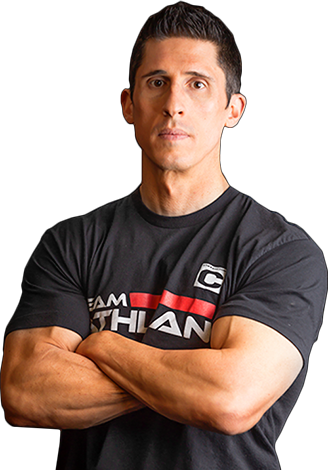
Jeff Cavaliere M.S.P.T, CSCS
Jeff Cavaliere is a Physical Therapist, Strength Coach and creator of the ATHLEAN-X Training Programs and ATHLEAN-Rx Supplements. He has a Masters in Physical Therapy (MSPT) and has worked as Head Physical Therapist for the New York Mets, as well as training many elite professional athletes in Major League Baseball, NFL, MMA and professional wrestling. His programs produce “next level” achievements in muscle size, strength and performance for professional athletes and anyone looking to build a muscular athletic physique.

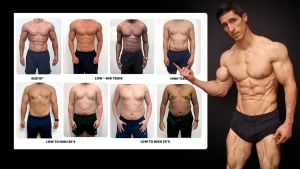



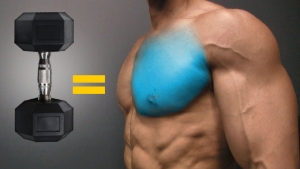






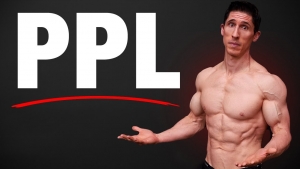



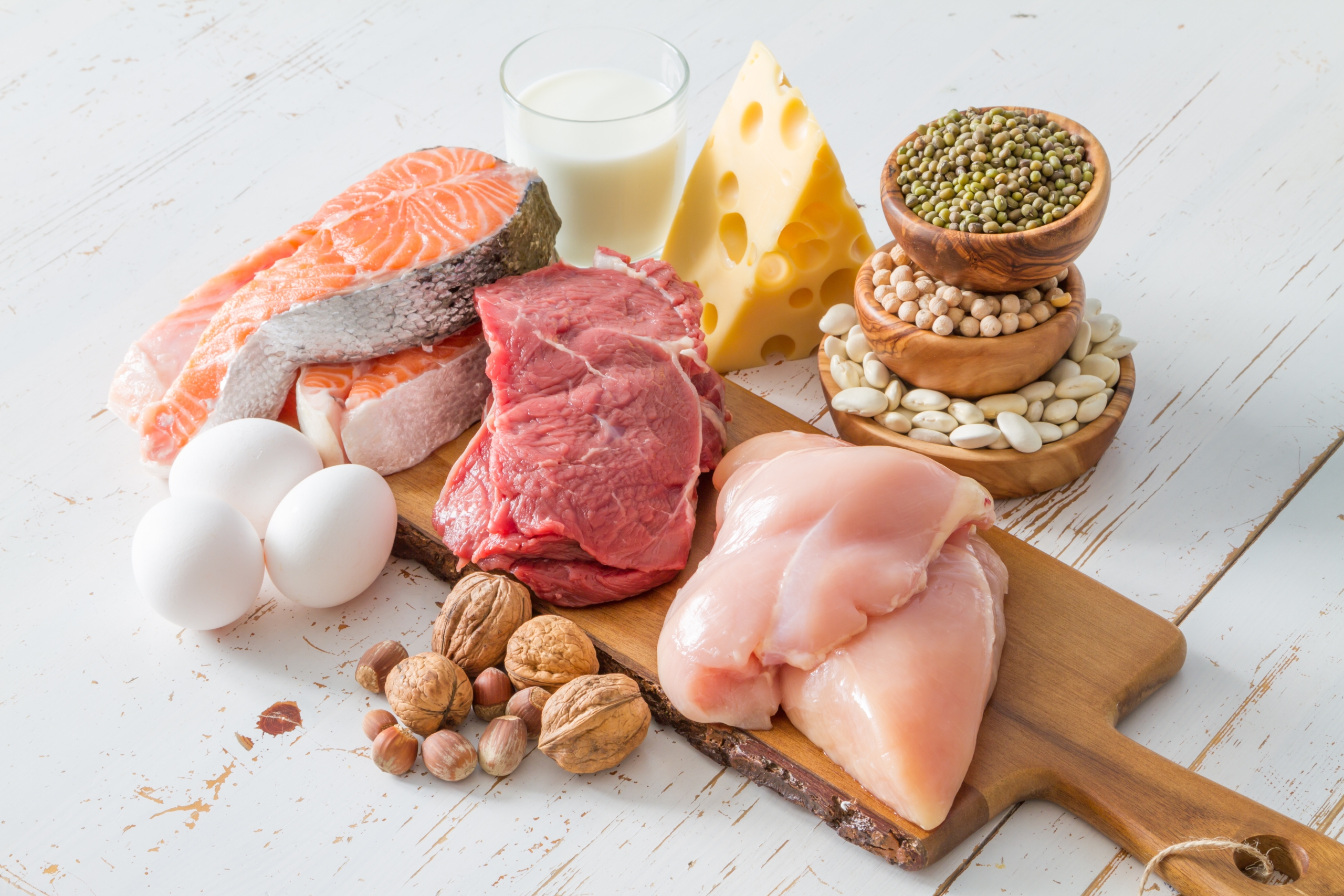
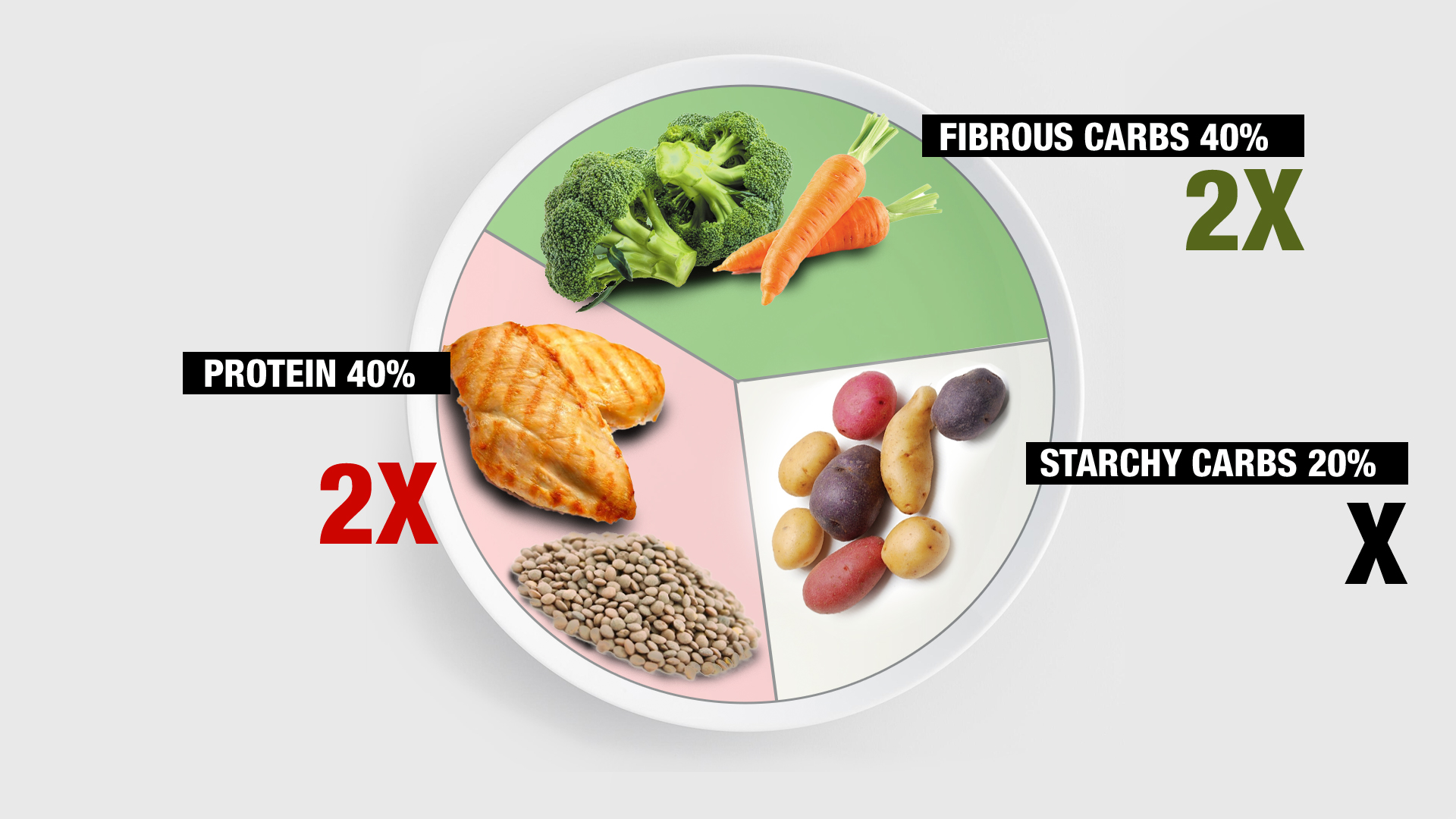
















![High Grade Omega-3’s for Building High Quality Muscle [NEW EVIDENCE] High Grade Omega-3’s for Building High Quality Muscle [NEW EVIDENCE]](https://athleanx.com/wp-content/uploads/2014/09/BLOG-IMAGES_0030_Fish-Oil-300x169.jpg)

